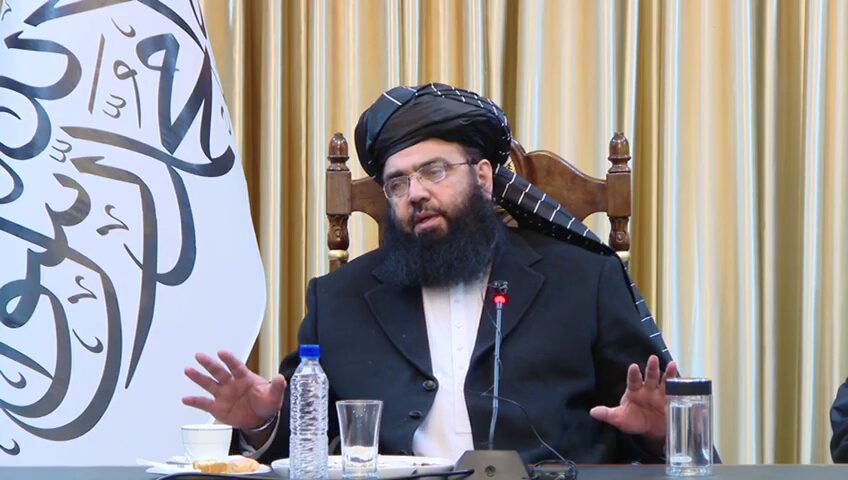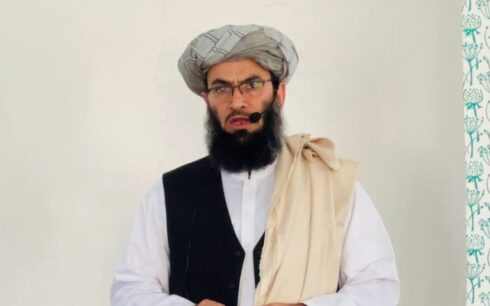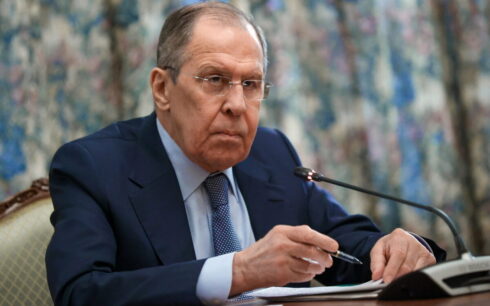KABUL, Afghanistan — Abdul Kabir, the Taliban’s newly appointed acting minister for refugees and repatriation, has confirmed that he accepted the directive from the Taliban’s supreme leader to leave his role as deputy political leader and assume his new position. His statement comes after 10 days of silence following his appointment.
Kabir’s remarks were made on his first day in office amid reports of internal tensions between the Kandahari faction of the Taliban and the Haqqani network over the leadership change.
Photos released by the Ministry of Refugees and Repatriation show Kabir conducting his work from the Sapidar Palace, where he previously operated as the Taliban’s deputy political leader. Amu TV’s analysis of the images confirms that his recent meetings and speeches took place at the same location.
In his speech, Kabir acknowledged the delay in his transition and reiterated his commitment to following the orders of the Taliban’s supreme leader. “I obeyed my superior in both matters: the transfer from the political deputyship and the acceptance of responsibility as acting minister for refugees. I will fulfill my duties accordingly,” he said.
The Ministry of Refugees had been led for three years by Khalil Haqqani, the uncle of Taliban Interior Minister Sirajuddin Haqqani. However, Khalil Haqqani was killed in December in a suicide bombing claimed by ISIS-K.
After his death, sources report that the Haqqani network considered the ministry part of its share in the Taliban’s power structure and sought to have a family member, potentially Khalil’s son, succeed him. Abdul Kabir, meanwhile, reportedly sought to retain his previous role as deputy political leader in addition to his new appointment.
The disagreement escalated into an eight-day standoff between the Kandahari faction and the Haqqani network. Analysts see Kabir’s appointment as a move by the Taliban’s leadership to curtail the Haqqani network’s influence.
Zia Badakhsh, a researcher, noted, “The Haqqani network wanted one of Khalil-ur-Rahman Haqqani’s family members, particularly his son, to take the post. But the Taliban leader appointed someone from outside the Haqqani family and Loy Paktia to reduce the network’s influence and weaken Sirajuddin Haqqani.”
The position of deputy political leader has been significant in overseeing local and governmental appointments in the past three years. However, with Kabir’s departure, the future of the role remains unclear.
Sources told Amu that two possibilities are under consideration: either the position will be eliminated entirely, or a new appointee will be selected who can work with Sirajuddin Haqqani without facing opposition.





